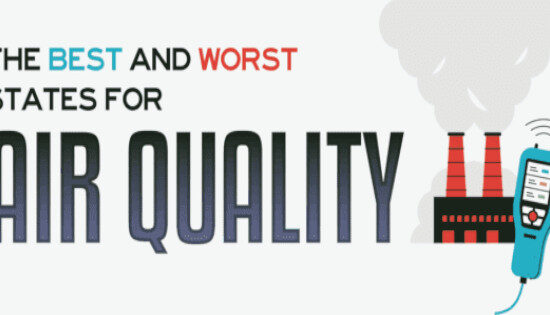IN OTHER NEWS – A new survey recently revealed which state’s labor laws that Georgia workers envy the most, along with the most desired law.
Release:
Georgia Workers Envy Colorado’s Labor Laws Most, Survey Finds.
- Survey asks Georgians which other state’s labor laws they would most like to adopt.
- Georgia respondents identified a higher minimum wage as the law they desired most.
- Infographic included.
Labor laws in the U.S. vary widely from state to state, shaping the working conditions, wages, and rights of millions of employees. While some states enforce progressive labor protections, including high minimum wages and extensive paid leave policies, others prioritize business-friendly regulations that offer flexibility to employers.
But which states have the most enviable labor laws? To answer this question, Bisnar Chase surveyed 3,000 employees, asking them one central question:
“Which state’s labor laws do you most envy”
The results revealed a mix of states that workers perceive as having the best labor protections, benefits, and workplace rights. From high minimum wages to strong protections against wrongful termination.
Georgians overwhelmingly said they would want to adopt Colorado’s labor laws in their state. Their top 10 most envied labor laws are as follows:
Created by Bisnar-Chase • Viewlarger version
1. Colorado
The labor laws they envy the most are from Colorado, which is known for its progressive labor laws. Colorado’s labor laws include a relatively high minimum wage that adjusts annually based on the cost of living, ensuring fair pay for workers. The state’s Healthy Families and Workplaces Act requires employers to provide paid sick leave, with additional emergency leave during public health crises. Colorado also enforces stringent workplace safety regulations, particularly in industries like mining and construction, to protect employees from hazards. The state actively supports unionization and has passed laws limiting non-compete agreements, empowering workers to seek better opportunities.
2. Oregon
Oregon has one of the highest minimum wages in the country, with rates that adjust annually based on inflation, ensuring workers keep pace with the cost of living. The state’s robust paid family leave program provides employees with up to 12 weeks of paid time off for life events like childbirth, illness, or caring for a loved one. Oregon also leads in workplace inclusivity, with strong protections against discrimination based on gender identity, sexual orientation, and other characteristics. The state actively enforces its labor laws, particularly in safeguarding agricultural and gig workers from exploitation, making it a model of equity and fairness for employees.
3. Washington
Washington stands out for its exceptional worker protections, including one of the highest minimum wages in the U.S., which is adjusted annually to account for inflation. The state’s Paid Family and Medical Leave program allows workers to take up to 12 weeks off with partial pay for family needs. Additionally, Washington’s laws extend strong protections to gig workers and independent contractors, particularly in industries like rideshare drivers. Workplace safety is a priority, with strict regulations that address high-risk sectors like construction and agriculture.
4. California
California boasts one of the highest statewide minimum wage among large states ($16 per hour,) and some exceptionally strong workers rights. It mandates paid family leave, strict workplace safety regulations, and prohibits most non-compete agreements. Additionally, California has aggressive laws against wage theft and employee misclassification, ensuring gig workers and independent contractors receive fair treatment.
5. New York
New York’s labor laws are among the most worker-friendly in the nation, and particularly envied by Georgia workers. The state enforces a high minimum wage ($16.50 in NYC and surrounding counties, $15.50 in most other areas) and offers paid family leave, sick leave, and offers (some) wrongful termination protections. New York also has strict workplace safety laws, particularly in industries like construction and hospitality. Additionally, employees benefit from one of the most comprehensive wage theft protection laws in the U.S.
6. Massachusetts
Massachusetts is a leader in labor rights, offering comprehensive benefits that prioritize worker well-being. The state’s Paid Family and Medical Leave program provides up to 26 weeks of paid leave, among the most generous in the nation. Its minimum wage is amongst the highest in the U.S., and it increases regularly to match economic conditions. Massachusetts also boasts some of the strongest workplace discrimination laws, protecting employees across a wide range of industries. The state actively promotes unionization, further empowering workers to advocate for fair treatment and better conditions.
7. Connecticut
Connecticut mandates paid sick leave, enforces a high minimum wage, and provides extensive worker protections, making it one of the most employee-friendly states in the nation. Workers benefit from up to 12 weeks of paid family leave through the state’s Paid Leave Authority, offering critical support during significant life events. The state is also a trailblazer in workplace equity, with laws addressing pay transparency and prohibiting salary history inquiries. Connecticut’s commitment to worker safety extends to proactive inspections and enforcement, ensuring employees have secure and fair workplaces.
8. North Jersey
New Jersey mandates paid sick leave, family leave, and a high minimum wage, which adjusts annually to reflect inflation. Workers in the state benefit from some of the strongest anti-discrimination laws in the country, covering a wide array of protected classes. New Jersey also prioritizes wage theft prevention and has enacted regulations ensuring that gig workers and independent contractors are fairly treated. Its Family Leave Insurance program provides up to 12 weeks of partial pay for bonding with a new child or caring for a seriously ill family member, making New Jersey a standout for work-life balance.
9. Illinois
Illinois ranks highly thanks to its worker-centric labor laws. The state’s minimum wage is one of the highest in the Midwest ($14 per hour, rising to $15 in 2025), and it offers paid sick leave, family leave, and robust workplace discrimination protections. Additionally, Illinois has taken a pro-worker stance on union rights and passed laws restricting the use of non-compete agreements. Chicago, in particular, enforces additional worker protections, making Illinois a state where employees feel well-supported.
10. Maine
And Georgians’ 10th most envied labor laws are from the Pine Tree state. Maine enforces a higher than average minimum wage, with annual cost-of-living adjustments to protect workers’ earnings. The state offers up to 12 weeks of paid family and medical leave through its newly implemented program, ensuring employees can balance work with personal obligations. Maine also has robust laws to prevent wage theft and requires transparency in pay practices to promote equity. With strong protections against workplace discrimination and a focus on creating safe environments, Maine ensures workers across all sectors feel valued and supported.
The survey also explored which labor rights Georgia workers believe would most improve their work-life balance:
- Higher minimum wage (34%) and flexible work schedules (33%) ranked as the most desired improvements.
- More paid vacation days (18%), stronger union protections (8%), and paid family leave (7%) were also noted.
When asked which labor laws should be nationwide:
- Higher federal minimum wage (30%) and a four-day workweek (28%) were the most popular choices.
- Guaranteed paid sick leave (20%), stronger workplace safety regulations (13%), and laws preventing after-hours employer contact (9%) also gained support.
Furthermore, 84% of respondents believe stronger labor rights lead to a better economy in the long run, highlighting a widespread belief in the connection between worker protections and economic stability.
“As labor laws continue to evolve, more states may adopt progressive policies that better balance worker rights with economic growth”, says Brian Chase of Bisnar Chase. “Whether you’re seeking better wages, stronger job security, or paid leave benefits, the best labor laws ultimately depend on what matters most to you as a worker”.











